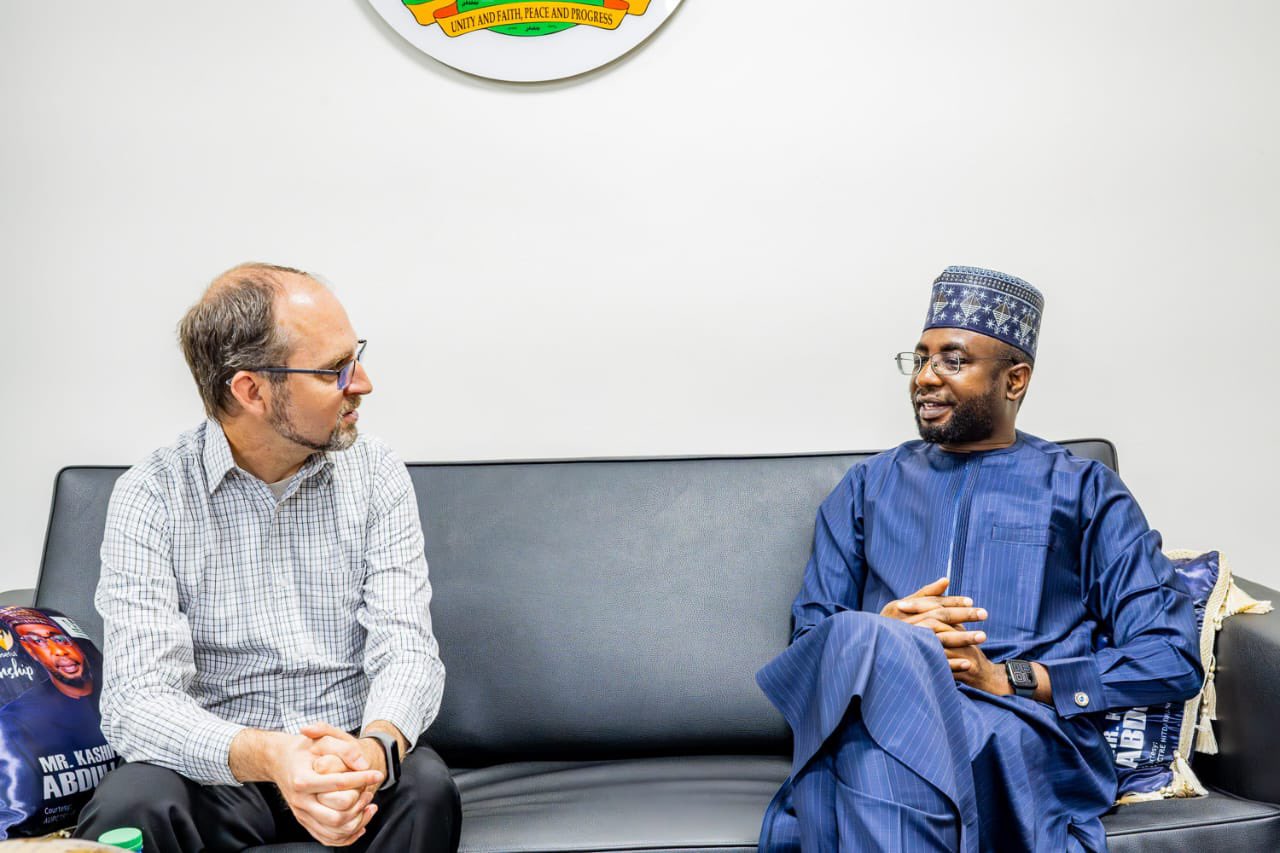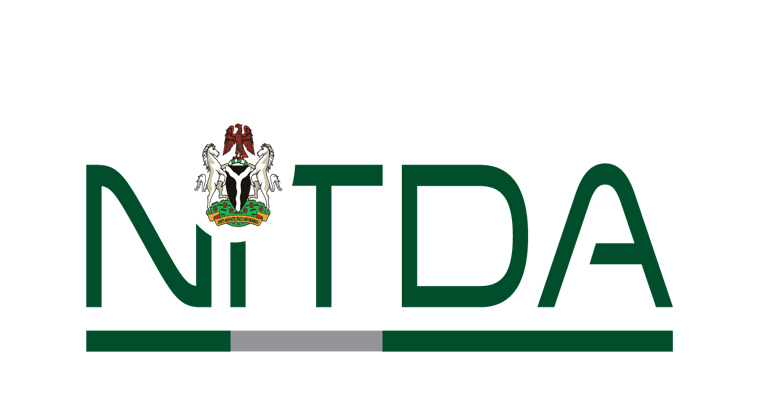Infotech
FEC approves National Blockchain Policy
By Ibiyemi Mathew
The Federal Executive Council (FEC) has approved “The National Blockchain Policy for Nigeria.”
The approval followed a presentation of the draft made by the Minister of Communications and Digital Economy, Professor Isa Ali Ibrahim Pantami.
According to a statement by the Minister, the Federal Executive Council also directed all regulatory bodies to develop relevant developmental regulatory instruments.
The regulatory bodies are the National Information Technology Development Agency (NITDA), Central Bank of Nigeria (CBN), Securities and Exchange Commission (SEC), Nigerian Communications Commission (NCC), and Nigeria Universities Commission (NUC), among many others.
The implementation of the National Policy is with immediate effect.
Infotech
DPI: Ministry partners ICPC to boost anti-corruption efforts


The Independent Corrupt Practices and Other Related Offences Commission (ICPC) and the Ministry of Communication Innovation and Digital Economy (FMoCIDE) have initiated a partnership to advance the fight against corruption through the utilisation of Digital Public Infrastructure (DPI).
The Collaboration was sealed during a courtesy call by ICPC Chairman, Dr. Musa Adamu Aliyu, SAN on the Hon. Minister of Communications and Digital Economy, Dr. Bosun Tijjani yesterday.
Recognising the pivotal role that DPI plays in combating corruption and fostering transparency and accountability in the public sector, ICPC is committed to leveraging this innovative technology to achieve its anti-corruption objectives.
The ICPC Chairman said, “Through our partnership with MoCIDE, ICPC will harness the power of DPI to enhance public registries and create an environment where corruption finds no refuge. By leveraging state-of-the-art digital solutions, we aim to establish a robust framework that leaves no room for the misappropriation of public funds or the concealment of ill-gotten gains.”
“Furthermore, in accordance with our statutory mandate outlined in Section 6, ICPC will provide expert guidance and oversight to ensure the effective implementation of DPI-based solutions to eradicate corruption and corrupt practices at every level of government. We remain steadfast in our commitment to driving systemic reforms that promote integrity, accountability, and ethical conduct across all sectors,” he added.
Dr. Aliyu further said, “The impact of this collaboration extends far beyond the realm of anti-corruption efforts. By strengthening transparency and accountability in the public sector through DPI, we anticipate significant improvements in the ease of doing business, economic growth, and job creation. Moreover, by fortifying the integrity of digital systems, we enhance Nigeria’s reputation on the global stage, attracting foreign investment and fostering sustainable development.”
“As Nigeria’s lead anti-corruption agency, ICPC is fully dedicated to the pursuit of a corruption-free society. We call upon all stakeholders – government institutions, private sector organisations, civil society groups, and citizens – to join us in this noble endeavor. Together, we can build a future where integrity, transparency, and accountability serve as the cornerstones of our nation’s progress.”
Infotech
Food Security: NITDA, USAID to partner in tackling food insecurity


With over 70 million arable land enough to feed not just Nigeria but Africa, the Director General, National Information Technology Development Agency (NITDA) has said that the Agency is willing to partner with the United States Agency for International Development (USAID) and relevant stakeholders to tackle food insecurity in Nigeria.
The Director General made this known while receiving representatives from USAID led by Josh Woodard Senior Digital Advisor Bureau for Resilience, Environment, and Food Security, at the Agency’s Corporate Headquarters in Abuja. The purpose of the visit was to have a rapid landscape assessment of digital agriculture in Nigeria and partner with NITDA.
Inuwa said, “One of President Tinubu’s areas of focus is boosting agriculture to achieve food security, and at NITDA we were set up to develop the National IT Policy, and IT policy is not just about developing IT but developing IT to boost productivity across all critical sectors including agriculture.”
“That is why we do a lot of initiatives in trying to see how we can build an agriculture Strategy with IT in mind and make it a more attractive business to the younger generation,” he added.
Inuwa stated that NITDA has identified six emerging technologies that will aid in achieving food security in Nigeria. He said, “We have an Artificial Intelligence (AI) Strategy co-creation workshop going on, which started on Monday, where we are working with the ecosystem to develop a strategy on how to use AI in agriculture, health, education, and so on.
“We are working on how to use the Internet of Things, (IoT) in agriculture for crop monitoring, soil monitoring, precision irrigation, climate monitoring, livestock monitoring, and so on.”
“We are working using Unmanned Aerial Vehicles (UAVs) to facilitate pest detection, water control, yield assessment, and so on.
“We are working on using Blockchain for the traceability of farm produce from farm to store, record keeping, quality assurance, and so on.
“We are working on using Robotics to enhance productivity in agriculture in terms of automation of physical farm processing like weeding, harvesting, tractors, and many more.
“For additive manufacturing, we are working on using it to upscale our manufacturing industry in the Agricultural sector for the production of crop and soil monitoring devices, customised equipment, and many more.”
Speaking on NITDA’s commitment to ensuring that Nigeria develops its digital offering in-country, Inuwa noted that the Nigeria Startup Portal was launched during the week with over 12,000 startups registered so far. He said they would be labelled after which they could have access to incentives.
Earlier Josh Woodard, USAID said that the meeting was to enable USAID to have first-hand information on what Nigeria is doing in digital farming to see how to enhance the integration of digital technology in agriculture.
He revealed that USAID recently launched the Global Food Security Strategy for Nigeria (2024 -2029) in collaboration with the Federal Ministry of Agriculture and Rural Development
He said, “We want to work with all stakeholders to ensure food security in Nigeria.”
The meeting discussed the National Adopted Village for Smart Agriculture (NAVSA) in relation to the success stories the initiative has recorded, the expansion strategy it is adopting and calls on the USAID to be part of the initiatives.
Infotech
NITDA, NIMC forge partnership to revolutionise Nigeria’s digital infrastructure


By Blessing Emmanuel, Abuja
In a strategic move aimed at reinforcing Nigeria’s digital ecosystem and fostering digital trust, the National Information Technology Development Agency (NITDA) has announced its collaboration with the National Identity Management Commission (NIMC) on the implementation of the National Public Key Infrastructure (PKI) and Digital Public Infrastructure (DPI) initiatives.
This collaboration is expected to significantly enhance digital identity management, streamline the payment ecosystem, and facilitate secure, seamless data exchange across the country.
The partnership was formalised during a recent high-level meeting between NITDA Director General, Kashifu Inuwa, CCIE, and NIMC Director General, Engr. Bisoye Coker-Odusote.
During the meeting, Inuwa reiterated the importance of building robust DPI stacks to ensure the secure exchange of data, emphasizing that partnerships such as this are instrumental in transforming the national identity system. He also highlighted the pivotal role of PKI in driving Nigeria’s digital transformation agenda forward.
This partnership represents a key step forward in enhancing Nigeria’s digital infrastructure, ensuring secure data exchange, and fostering digital trust among stakeholders.
In discussing NITDA’s Strategic Roadmap and Action Plan (SRAP) 2.0, Inuwa provided insights into the agency’s evolving vision and mission, which have been crafted to align with current industry realities.
The SRAP 2.0 is built on eight key pillars, including fostering digital literacy, cultivating talent, building a robust technology research ecosystem, strengthening policy implementation and legal frameworks, promoting inclusive access to digital infrastructure and services, enhancing cybersecurity and digital trust, nurturing an innovative and entrepreneurial ecosystem, forging strategic partnerships and collaborations, and cultivating a vibrant organisational culture with an agile workforce.
Echoing Inuwa’s sentiments, NIMC’s Director General expressed the commission’s enthusiasm for collaborating with NITDA to advance the digital economy sector.
She emphasised the importance of cooperation among institutions to achieve common goals, stating, “No institution can implement all its policies and programs in isolation; we need each other to achieve the set targets.”
She also highlighted President Bola Ahmed Tinubu’s support for data integration and harmonisation across Ministries, Departments, and Agencies (MDAs) as well as the adoption of PKI to drive the country’s growth and development agenda.
The meeting concluded with the inauguration of a 12-man committee tasked with kick-starting and harmonising the initiatives outlined in the collaboration.
The committee is expected to deliver a comprehensive implementation report in the coming weeks, marking a significant milestone in the collaboration between NITDA and NIMC.
-
Finance3 months ago
Court orders Sen. Victor Umeh to repay N136m bank debt to AMCON
-



 Abuja Update2 months ago
Abuja Update2 months agoUNDP, FG partnership needed to achieve inclusion, equity- Minister
-
Abuja Update1 month ago
Banks drive stock market performance with N147bn gain
-



 Infotech3 weeks ago
Infotech3 weeks agoWorld Backup Day: NITDA urges Nigerians to ensure backup of data
-
capital market2 years ago
Rt.briscoe, FBNH, Others halts negative performance of stock market
-



 Health2 weeks ago
Health2 weeks agoImmunisation: FG, GAVI seek synergy with Sokoto Govt.
-
Infotech2 weeks ago
Forex for Beginners: Unveiling the currency exchange and how to trade it
-
Submission Guidelines4 months ago
CALL FOR SUBMISSIONS: POETRY COLUMN-NND








